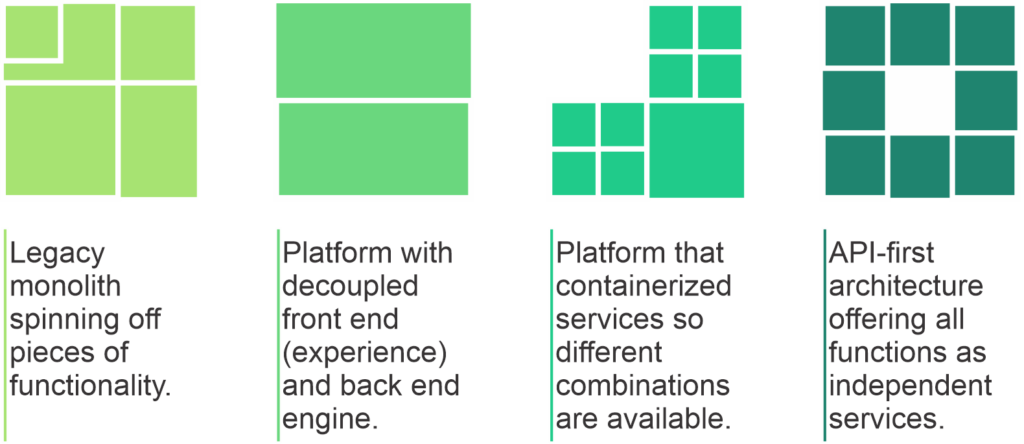
Even the retail industry’s darlings could be in for a rude awakening as the coronavirus pandemic hits consumers, putting millions out of jobs and keeping many holed up at home.
Start-ups such as Warby Parker, Allbirds, Glossier, Casper and Away have been shaking up product categories like glasses, shoes, cosmetics, mattresses and luggage. With private valuations that have soared above $1 billion, giving them so-called unicorn status, some analysts consider these companies to be among the strongest in retail.
They have amassed loyal bases of customers, many of them younger millennials, who have touted their products across social media. And since these companies were born on the Internet, before opening some stores or pop-up locations, some may expect they have an inherent advantage, as retail stores shutter and people stay home to prevent the spread of COVID-19.
But a new analysis suggests even the so-called direct-to-consumer industry is preparing to see steep sales declines. COVID-19 could be what puts some of these companies out of business altogether, venture capitalists have told CNBC.
In 2019, online sales for direct-to-consumer brands reached $14.28 billion, according to data from eMarketer.
In 2020, sales are forecast by the firm to grow 24.3% to $17.75 billion, slowing from 33.1% growth last year, and down from 56.5% growth in 2018.
“Even though consumers are buying more products online due to the coronavirus, digitally native [direct-to-consumer] brands should anticipate hardships in the coming months,” eMarketer analyst Oscar Orozco said in a report.
“Sales will continue to shift from nice-to-have products to must-have products, with [direct-to-consumer] brands falling under the nonessential category,” he said. “Disruptions in the supply chain are also likely. That will mean slower shipping times, normally a distinguishing factor for [direct-to-consumer] products.”
Direct-to-consumer brands in retail altogether make up about 2.6% of the U.S. e-commerce market, according to eMarketer. Amazon, meantime, is expected to account for 60% of U.S. e-commerce sales in 2020, it said, “making it even more of a challenge for disruptors to carve out their slice of the market.”
However, eMarketer noted, “a select handful will emerge as the brands of tomorrow.”
The question — still open for debate — is which ones.
There is some optimism in the start-up industry for the brands that can effectively communicate with customers during this pandemic, and not overuse promotions to reel customers in, which eat into profits.
Some have already turned to deeper discounting. Apparel maker Everlane, for example, sent an email to customers this week offering 25% off sitewide, saying: “We’ve never done it before. But there are a lot of firsts right now.”
Others, like swimsuit maker Andie, have sent out more personal messages to customers. Andie founder Melanie Travis wrote in an email to shoppers, giving out her contact information: “My inbox is open 24/7. I’m always here to listen, laugh, and sometimes cry with every Andie woman.”
“There are brands better-positioned to take advantage of … if everyone is shopping online,” said Web Smith, founder of 2PM. “I think the vast majority of [direct-to-consumer] brands that are well positioned, with strong supply chains, will be fine in the long run, assuming the credit bubble doesn’t pop.”
An early reading already shows more people are buying things from their laptops or smartphones, as many are being asked to stay home to try to help halt the spread of COVID-19. Most bricks-and-mortar stores, other than grocers and pharmacies, are closed for the foreseeable future. E-commerce sales climbed 25% from March 13 to 15, compared with the first 11 days of the month, according to data from Adobe Analytics.
Ultimately, many digital-savvy brands will be rolled into other businesses or acquired by larger competitors, 2PM’s Smith added. The emergence of COVID-19 could speed up the rate of that happening, he said, for the brands that are “too good to die.”
Some direct-to-consumer brands, meantime, have been able to quickly pivot their manufacturing operations to make supplies for health-care workers on the front lines of this pandemic.
Apparel company Ministry of Supply is making face masks.
Shoe maker Rothy’s, which uses recycled materials like water bottles in all of its products, said it is prototyping new personal protective equipment at one of its owned facilities.
Direct-to-consumer brands that have more control over their operations can pivot in this “war-time economy,” Smith said. “The brands that don’t have control … cannot find a way to fit into this new economy. That’s where you are going to see a problem.”

